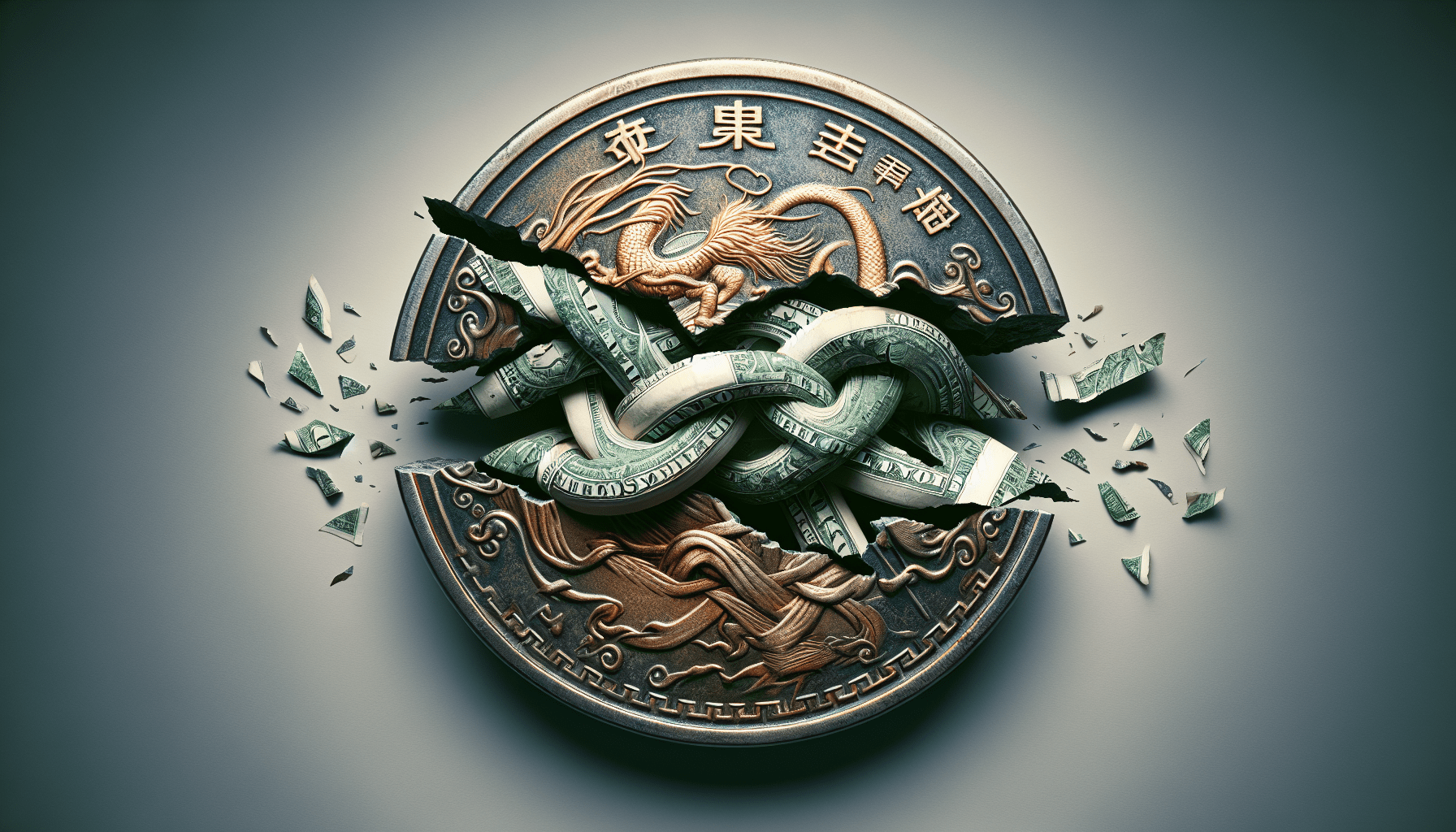Have you ever found yourself wondering what might transpire if China were to sell off its holdings of U.S. national debt? It’s a fascinating subject that touches on global economics, international relations, and the complex interdependencies between the world’s two largest economies. Let’s delve into what this would mean for the United States, China, and the global economy.

Understanding China’s Holdings of U.S. National Debt
First, it’s essential to unpack what it means for China to hold U.S. national debt. This form of debt is mainly in the shape of U.S. Treasury securities. These are bonds that the U.S. government issues in order to borrow money from investors worldwide, including other countries.
The Significance of U.S. Treasury Securities
U.S. Treasury securities are regarded as one of the safest investments globally. They are backed by the full faith and credit of the U.S. government. Countries like China buy these securities to invest their surplus financial reserves, seeking stable returns and liquidity.
The Scale of China’s Investment
As of recent data, China is one of the largest foreign holders of U.S. Treasury securities. This immense holding means China plays a significant role in the U.S. economy. Their investments help keep U.S. interest rates low and provide the U.S. government with the funds needed to finance its operations, including social programs and infrastructure projects.
Why Would China Consider Selling Its Holdings?
Before discussing potential repercussions, it’s crucial to explore why China might consider selling off its holdings. The motivations can be complex and multifaceted, ranging from economic strategy to political considerations.
Economic Strategy and Diversification
One reason China could sell its U.S. national debt holdings is to diversify its foreign exchange reserves. By holding a vast amount of U.S. securities, China is heavily exposed to U.S. economic fluctuations and risks. By selling some of its holdings, China might seek to invest in other assets or currencies, thereby reducing risk.
Geopolitical Considerations
Geopolitical tensions sometimes drive economic decisions. If relations between the U.S. and China were to deteriorate significantly, China might use its holdings as a leverage tool, potentially to exert pressure on U.S. policy decisions.
The Potential Impact on the United States
The idea of China selling off a substantial portion of U.S. debt might sound concerning, and it indeed has potential implications for the U.S. economy.
Inflation and Interest Rates
An immediate concern would be the impact on U.S. interest rates. If China decided to sell off a large amount of U.S. Treasury securities quickly, this could flood the market. An oversupply of these securities could lead to decreased prices and consequently, increased yields or interest rates. Higher interest rates could, in turn, result in increased borrowing costs for the U.S. government and consumers, possibly slowing down economic growth.
U.S. Dollar Value Fluctuations
Another potential impact is related to the value of the U.S. dollar. Large sales of U.S. Treasuries by China could lead to a decrease in the value of the dollar against other currencies. While a weaker dollar can boost U.S. exports by making them cheaper abroad, it could also lead to higher import costs and thus, inflation.
Global Economic Considerations
The effects of a Chinese sell-off wouldn’t be confined to the two countries alone. The global economy is interconnected, and such a move would have ripple effects.
Global Market Stability
Large-scale sales of U.S. Treasuries could lead to uncertainty and volatility in global financial markets. Investors around the world might react to the instability by reallocating funds, leading to potential market turbulence.
| Potential Impact | Description |
|---|---|
| Volatility in Global Markets | Investors may react unpredictably, possibly causing swings in stock and bond markets worldwide. |
| Impact on Other Economies | Countries reliant on stable U.S. bond markets might face economic challenges. |
Strategic Moves by Other Nations
Other countries might reconsider their own holdings of U.S. debt, either following China’s lead or opting to buy what China sells, seeing it as an opportunity to invest in lower-priced U.S. securities. This dynamic could add layers to international economic relations.

How Likely is a Large-Scale Sell-Off?
While it’s possible for China to sell its U.S. holdings, whether it would do so on a large scale is another matter. Such a move would carry risks for China too.
Impact on China’s Economy
Selling off U.S. debt could have adverse implications for China’s own economic stability. A rapid sale could contribute to a devaluation of the remaining bonds in their portfolio. Furthermore, an increase in U.S. interest rates could reduce global economic growth, indirectly affecting China’s export-driven economy.
Diplomatic and Trade Considerations
China’s decision-making would likely weigh the economic gains against potential diplomatic fallout. Such an action could exacerbate tensions with the U.S. and affect trade relations, which are crucial to China’s economy.
Countermeasures and Strategies
If China were to start selling off its holdings, the U.S. would likely take measures to mitigate adverse effects.
Policy Adjustments
The U.S. government might consider policy changes to counteract the impacts of a sell-off. This could include monetary policy adjustments by the Federal Reserve, such as buying back some of the excess Treasuries to stabilize interest rates.
Strengthening International Relations
Strengthening ties with other nations could be another approach. By bolstering relationships and enhancing trade agreements, the U.S. could secure alternative buyers for its debt, ensuring continued demand and stability.
Final Thoughts
The complex web of economic, political, and strategic factors makes the scenario of China selling off its U.S. debt holdings both fascinating and daunting. It serves as a reminder of the interconnectedness of today’s global economies and the delicate balance that sustains them. Understanding these dynamics can provide valuable insights into the challenges and opportunities that lie ahead.
